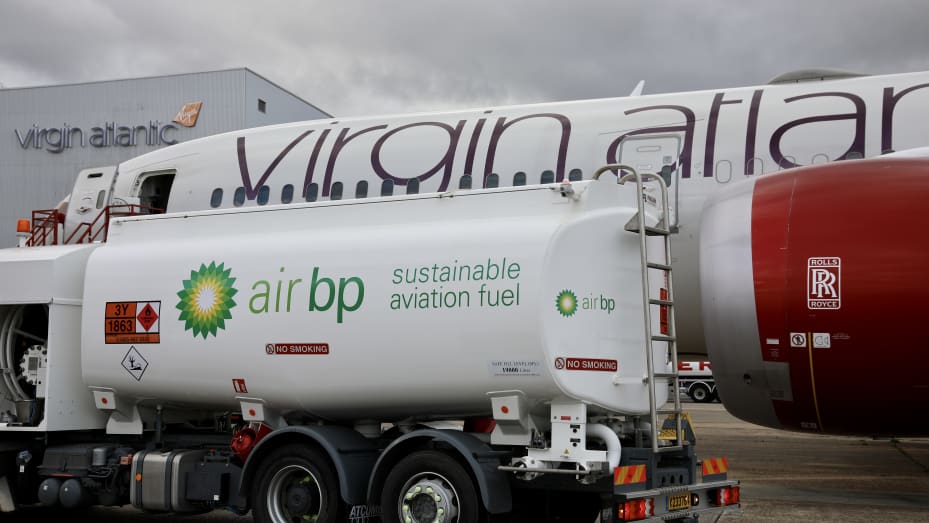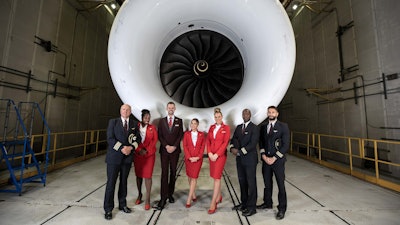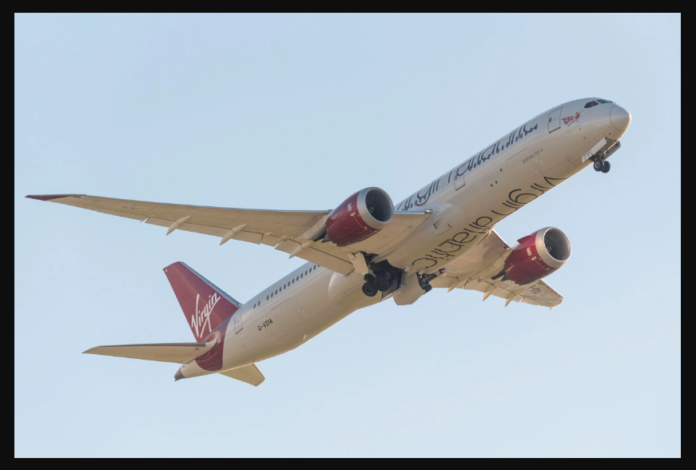In an effort to demonstrate the practicality of environmentally friendly flying, the first Virgin Atlantic transatlantic flight using only sustainable aviation fuel took off from London for New York on Tuesday.
Virgin Atlantic’s Boeing 787 is using a mixture consisting of 12% synthetic aromatic kerosene derived from plant sugars and 88% waste fats provided by AirBP.
Source : NBC NEWS

Virgin Atlantic
According to Flightradar24 data, test flight VIR100, which is not carrying paying passengers, took off from London Heathrow for New York JFK at 11:49 a.m. U.K. time (6:49 a.m. ET). It is expected to touch down just under 2:00 p.m. ET.
The phrase “sustainable aviation fuel,” or “SAF,” refers to a broad category of non-fossil fuels, including biofuels made from plant or animal matter, municipal garbage, and agricultural wastes.
Although supporters contend that the fuel’s total “lifecycle emissions” are far fewer than those of conventional petroleum-based fuel, pollutants are still produced.
While SAF was once the statutory limit, several airlines have used it on commercial flights, usually for shorter distances, and in mixes of up to 50% with conventional gasoline. The Civil Aviation Authority of the United Kingdom gave its approval earlier this month for Tuesday’s Virgin Atlantic flight.
In 2021, a consortium of sixty businesses from the airline, transportation, and freight sectors committed to using 10% SAF in the world’s jet aircraft fuel supply by 2030.
One benefit of SAF is that it doesn’t need any modifications to operate in current airplane engines. In an effort to reduce total flying emissions, some airlines have committed to investing in the use of fuel, in part by using more fuel-efficient aircraft.

Its broad acceptance is nevertheless beset by a number of obstacles, not the least of which are supply constraints, rising prices, and worries about the sustainability of its production.Virgin Atlantic
Due to poor profits, there aren’t many SAF manufacturing facilities or firms that ship it internationally, which makes producer incentives difficult.
In an earlier study this year, the Royal Society of the United Kingdom issued a warning, stating that only a small percentage of biofuels could be classified as net low-carbon and that scaling up feedstock supply was a concern.
Certain organizations contend that increasing the production of biofuels might exacerbate food shortages and deforestation and that the only practical solution to lessen aviation’s environmental impact—aviation accounts for around 2% of global greenhouse gas emissions—is to reduce the number of flights.Virgin Atlantic
The trip will demonstrate that SAF “may be used as a safe, drop-in replacement for fossil-derived jet fuel and it’s the only viable solution for decarbonizing long haul aviation,” according to Virgin Atlantic CEO Shai Weiss.
“There is just not enough SAF, and it is obvious that much more investment is required to achieve production at scale. Only with government-backed pricing support mechanisms and regulatory clarity will this be possible,” he said.





